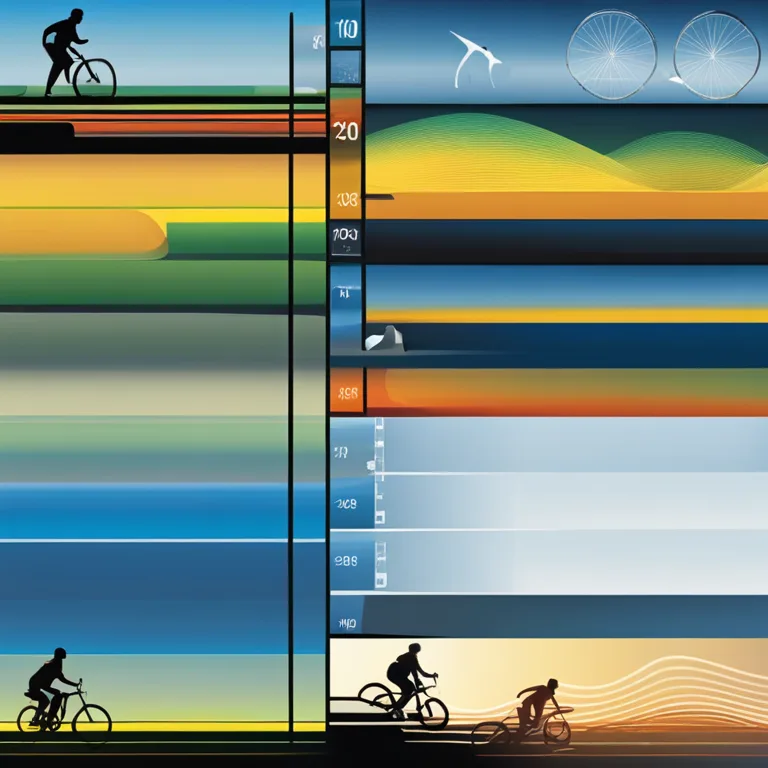
The Rhythms Within: Interpreting Biorhythms in Psychology
Delve into the intriguing world of biorhythms psychology and discover how these innate cycles might influence our mood, performance, and interactions.
article by Adrian Wallace
The Essence of Biorhythms
In the realm of holistic well-being, the concept of biorhythms occupies a peculiar niche. Biorhythms represent the idea that our lives are influenced by natural physiological cycles. These cycles are believed to affect our physical, emotional, and intellectual faculties. The theory posits that from the moment of birth, individuals embark on these cyclical patterns that repeat at regular intervals throughout life, potentially impacting behavior and performance. Although skepticism is prevalent within scientific communities, biorhythm theory continues to pique interest among those seeking a deeper understanding of the mind-body connection. The origin of biorhythm theory dates back to the late 19th century, yet it still stimulates modern discourse regarding its applicability in psychology.

Core Biorhythms and Their Implications
Traditionally, biorhythms are categorized into three primary cycles: the physical (23-day cycle), the emotional (28-day cycle), and the intellectual (33-day cycle). Proponents suggest that one's ability to perform physical tasks, process emotions, and engage in intellectual activities can be predicted based on these cycles. When a cycle is in its positive phase, or 'high', an individual may experience heightened abilities specific to that cycle. Conversely, during a 'low' phase, potential difficulties or lowered capacities might be anticipated. Despite a lack of empirical evidence to irrefutably substantiate such claims, many believe in adjusting their activities to coincide with these projected high-performance periods for optimal results.

Contemporary Understanding of Biorhythm Efficacy
As we inch farther into the 2020s, the scrutiny around pseudoscientific claims has intensified. However, within this critical landscape, biorhythm theory maintains an audience. Even today, various software and apps offer personal biorhythm calculations, aligning with users’ search for self-improvement and personalized insight. It's essential to critically assess the efficacy and evidence behind biorhythms, especially in an era when psychological and physiological claims are often expected to be backed by scientific data. Yet, this vigilance has not entirely quelled an enduring curiosity around the subject.

Biorhythms and Performance Forecasting
The use of biorhythms to potentially forecast optimal performance periods has intrigued athletes, educators, and business professionals alike. While science-backed training regimens and peak performance strategies usually overshadow biorhythm analysis, there remains a subset of individuals who utilize these cycles as a framework for planning activities or anticipating challenges. The practicality of biorhythms lies not in irrefutable scientific acceptance but in its subjective application by individuals who report anecdotal evidence of its benefits.

The Psychological Appeal of Biorhythms
The integration of biorhythms into psychological discussions can be attributed partly to humanity's inherent desire for patterns and predictability in life. The biorhythm theory provides a structured, if speculative, system for individuals to consider the ebb and flow of their capabilities. This search for patterns signifies a more profound human yearning for control and mastery over one's life—a sentiment that extends beyond empirical evidence and into the psychological need for order and understanding.
Biorhythms in a Modern Context
Within the contemporary digital landscape, interest in biorhythms may well continue, driven by advancements in technology and big data analytics. Future developments in personalized healthcare and wellness could usher in new ways to consider these cycles, perhaps by correlating them with empirical physiological data. While the concept of biorhythms may evolve, its roots in psychological curiosity will likely endure, mirroring society's intrinsic fascination with the rhythms governing life.
Published: 12/28/2023
Modified: 12/28/2023
More predictions
Come back here soon to learn more about yourself and your future


The Core of Biorhythm Theory
Delve into the core of biorhythm theory, a concept that suggests our daily lives are influenced by natural physiological cycles.


Biorhythm: The Significance of Compatibility
Discover the significance of biorhythm compatibility in relationships and how syncing life cycles can impact partnership dynamics.


The Mechanics of Biorhythms: A Comprehensive Guide
Discover how biorhythms influence your daily life with this detailed guide to the rhythms that govern our physical, emotional, and intellectual states.